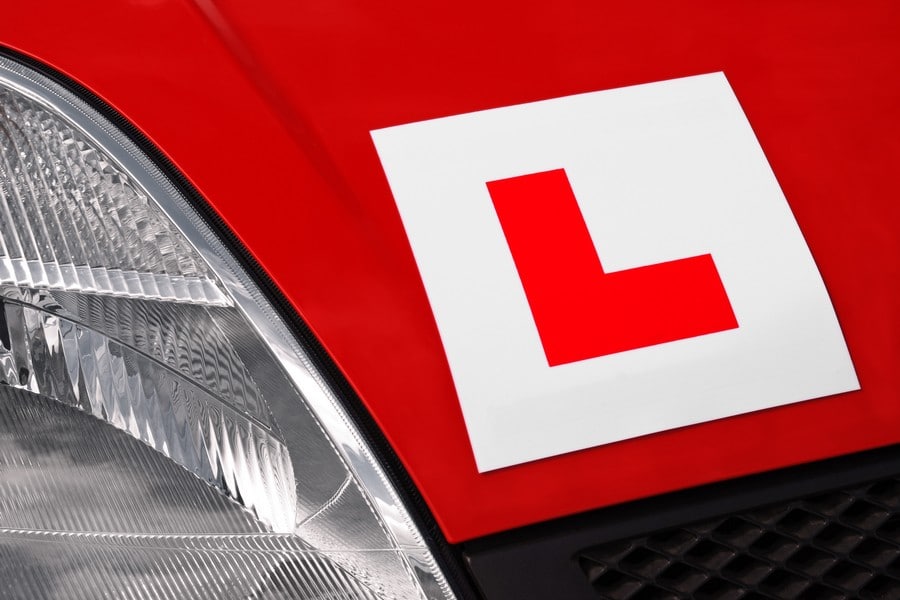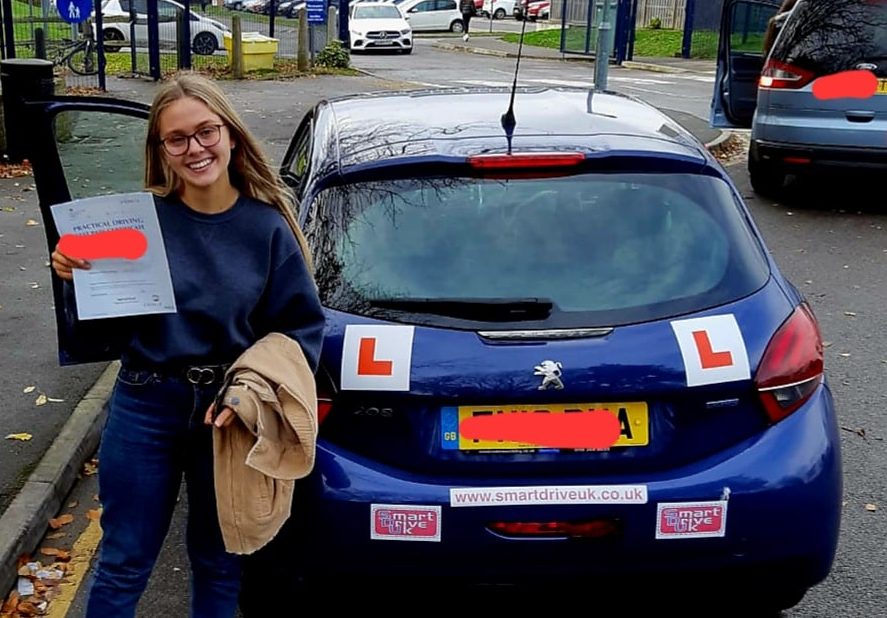
Here are 20 driving test tips to help you pass on your first try.
1. Pick an instructor/school that is the best fit for you
Across the country, you can find a whole bunch of driving schools and drivers. Therefore, you can choose from an endless range of driving instructors.
Learning to drive can be a difficult process, especially if you are a beginner. As an alternative to spending hours surfing the web reading reviews of local schools and instructors, why not ask a friend who has already taken the course?
You can ask anyone you know who has passed or is still learning what the process has been like. It’s a good start to whittle down your options if they recommend someone.
Start by making sure the school or person you choose has been accredited by the DVSA (Driver and Vehicle Standards Agency). If you want to do this, you can check a database for authorized instructors and schools in your area.
The DVSA’s database is available voluntarily by instructors and schools. It is still possible to find out the approval status of an entity that is not on the list. It is simply a matter of contacting the DVSA and providing the name and ADI number of the person or learning centre.
2. Organize your time
Make sure you give yourself enough time to get to know how to drive and pass your driving test. You shouldn’t try to hurry the process, because many skills are learned through experience, and multiple tests are costly. Ask your instructor when they think you will be capable.
3. Spending plan
Learning to drive comes with many costs, so make sure you have the necessary funds. A provisional license, theory test, intensive driving lessons (45 hours on average in the UK) and the practical driving test are included in the costs.
4. Schedule lessons regularly
Maintain regular lessons and get behind the wheel at least two hours a week. Your instructor will be able to monitor your progress and boost your confidence while ensuring that there is no time for you to forget what you have already learned.
5. Keep a progress log
Keeping a record of your accomplishments will keep you motivated. Depending on your tutor, there may be a progress log for keeping track of your progress. If your tutor does not use one, make one yourself.
6. Put in a lot of practice
Obtain some practice time on the road with a relative or friend after you’ve gained some experience with an instructor. Gaining experience is essential to becoming a confident driver. Make the most of your driving time. The age requirement for accompanying a learner driver is 21 years old and with a full driving license for over three years. Don’t forget to secure the required insurance.
Practice spotting potential hazards on the road by using online learning resources. In this way, you will be able to identify situations that could arise and learn how to deal with them.
7. Become accustomed to driving in different weather conditions
The weather can be pleasant when you sit for your test, but, as we all know, this is not a guarantee. Do your best to practice in both poor and good weather with your instructor.
It’s also a good idea to take the road in the dark and foggy conditions, so you will feel more confident if the weather turns bad.
8. Take your instructor’s advice
Your driving instructor will know pretty well whether you’ll pass your test after hours of lessons.
They have no vested interest in you testing early, as it only wastes their time, hurts their passing rate, and undermines your self-confidence.
Don’t doubt your abilities if they say you’re up to the task.
Moreover, your teacher will be able to identify your weaknesses, so if you need a little extra help before your test, request a lesson to focus on them.
9. Pass your theory test as early as possible
After 10-15 hours of hands-on practice, you should be able to pass your theory test. Passing your driving test will allow you to take the practical exam and focus on achieving your goals.
10. Sit for a mock driving test
Use a test route and perform mock driving tests in real-world conditions. You will be prepared for the big day and will be able to calm your nerves knowing what to expect. A few points to remember: don’t tell too many people when your real practical test is, because you will feel more pressure on test day.
11. Test when it is convenient for you
It’s a good idea not to schedule your test at a time when you’ll most likely be distracted.
Whatever you have on your plate, whether it’s schoolwork, exams, family obligations, or anything else, be sure to schedule it so you’re able to give it full focus.
12. Select the location for your test
A driving test centre in a congested area with complex roundabouts and road networks may have low test rates compared to other locations.
Taking your test at a place that has a higher pass rate is not cheating – but consider how it will adequately prepare you to drive afterwards.
Be aware of the potential routes you maybe taken on and practice them.
13. Choose when you take your test
Don’t book your test for a time when you’re likely to have other things on your mind.
Whether it’s school work, exams, family commitments or anything else, make sure it falls at a time you can give it your undivided attention to ensure you have the best chance of passing.
14. Knowing your test routes is essential
The direction you’ll be given on the day or the obstacles you’ll encounter along the way cannot be predicted.
As soon as you choose your test centre, it is always a good idea to familiarize yourself with the test routes and the surrounding areas ahead of time.
Be sure to practice on different types of roads. A combination of main and secondary roads, small country roads, and dual carriageways is crucial for avoiding unpleasant surprises.
15. Make sure you have the necessary documents
Every year, many driving tests are cancelled because the candidate forgets essential items on the day of the test. And to make matters worse, you won’t get a refund. What a waste of money!
Ensure that you have all the necessary documents and that your vehicle meets the test requirements.
These include the driving licence and the theory test pass certificate.
16. A good night’s sleep is important
Avoid late nights before the test. Consider taking a simple lesson before the test to settle your nerves and put you in the right frame of mind.
17. Arrive on time
A good start is to arrive early for your test. It sets a great precedent for the rest of your test.
If you arrive late, you could miss it entirely, and rushing to make it on time will leave you feeling stressed regardless.
Plan to arrive at your test centre at least 10 – 15 minutes early so you have time to prepare and het your thoughts in place, but will not have too much waiting time.
Stress and anxiety can be avoided by getting a sufficient amount of sleep.
18. Try to remain calm
Remember to take a few deep breaths whenever you are feeling stressed, have become distracted, or have gotten something wrong on your test. Practising this will help you to relax, let go of the past, and keep you focused on the instructions ahead. If you feel that you have made a mistake, it may only be a small one, which means you can still pass the test. Feel free to ask a question if you are not sure what it means. If you aren’t sure what any instructions mean, you can ask your examiner to explain them to you.
19. In case of doubt, ask the examiner to repeat
Keep calm during your test if you are unable to hear an instruction properly. Ask for it to be repeated.
Your focus will be thrown off if you panic.
20. You shouldn’t assume failure
When you make an error, remember that you’re allowed 15 minor errors during your test, so try not to worry about it and proceed with confidence.
If you stall (provided it is not in a hazardous situation), it is a minor fault, even if at the time it feels like a big mistake. Simply restart the car when it happens.
If you let minor mistakes creep into your mind, you might end up making more.
Tip for you! Listen until the end
Whether you pass or fail your driving test, you’ll receive the most valuable driving advice you’ll ever receive.
A failing grade will be accompanied by a clear explanation of why you failed and what you can do to improve. Although you may have passed, you will still find the feedback that the examiner gives you to be extremely useful.
Don’t forget, your driving can always be improved.



